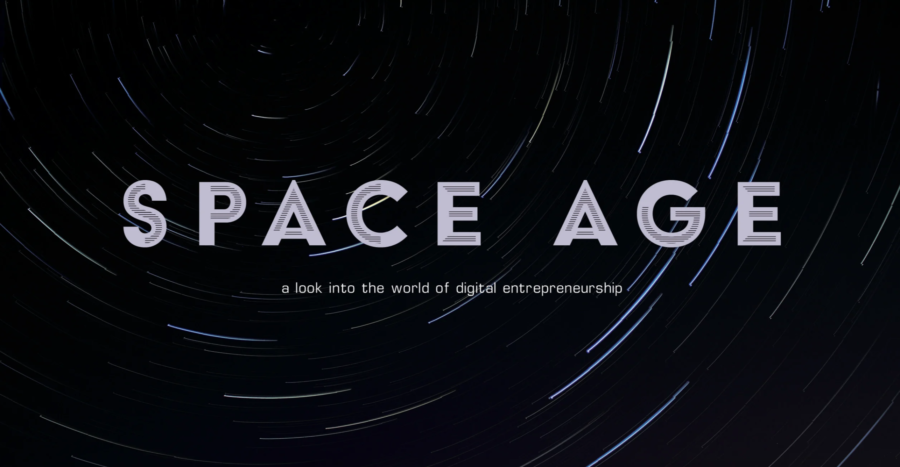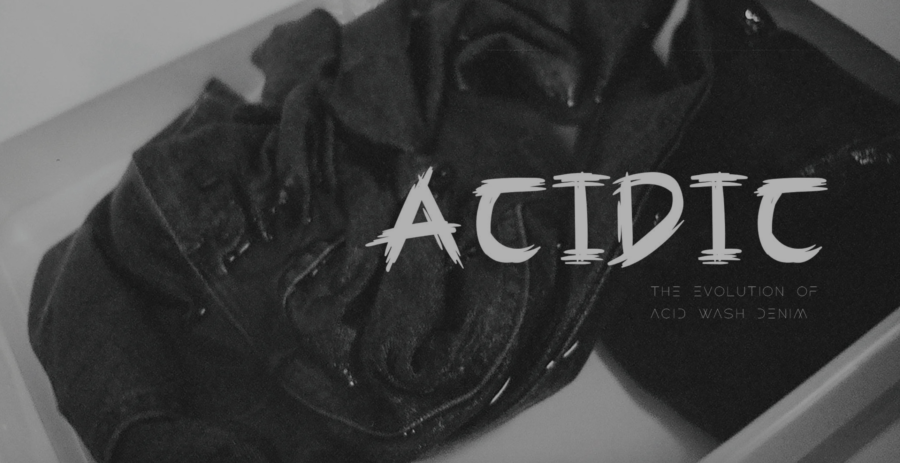No one is manning the front desk.
The hallway speaks of the end of the work week. One after another, the closed doors hide one more empty office. There is darkness under the door of 329- Steffen Palko, 327- Michelle Baum and 325- Cornell Thomas.
Door 322–Don Mills–is different, however. This door is propped open, and the room casts a puddle of light onto the gray hallway carpet.
Accompanying the yellow shadow is a faint Norah Jones melody that trickles into the hall.
Within the door frame, photos of the original TCU campus buildings dominate the walls.
At eye level on top of the desk cabinet, five model racecars appear ready to speed over the edge at the sound of the starting gun and scatter the papers lying on the desk.
Out the window, trees wave beyond the partially-open blinds. Cars come and go in the distant Kroger parking lot.
The music rings from the desk’s black computer screen. Mills, wearing a collared shirt, glasses and Terry Bradshaw-like gray hair plus a moustache, writes on a piece of paper.
He is composing an article about developing community in higher education. He says higher education is the only major institution that still brings Americans together since “we have so many people going to church but so many denominations [and] public schools, which are very segregated” and no draft tying a sense of commitment between each other.
“The only national movement where people have shared experiences is higher education. It’s a national goal, and we want everybody to have some kind of education beyond high school,” Mills said. “Maybe that’s the place where we need to have a focus on making certain that your college experience includes engaging people who are different from you in meaningful ways.”
Mills said he developed this philosophy in his more than 40-year career in higher education. After graduating from Harvard University with an undergraduate degree in government, he came to TCU and graduated from the Brite Divinity School. He earned his doctor of education from the University of North Texas and has held many positions at TCU, including director of housing and vice chancellor of Student Affairs. He now pilots a doctoral program for leadership in higher education.
———-
The black computer screen emits Lifehouse’s 2005 hit “You and Me.” It also gives a momentary chime, announcing a new email, but Mills does not stir. The computer only receives his attention when the music stops and Pandora asks, “Are you still listening?” to which he replies by pressing “Yes, I’m listening.”
Joshua Howton, a graduate student in one of Mills’ doctoral classes, said, “One of the things I really admire about him is he has a hungry mind. Sometimes people will glaze over and just allow you to talk, but he stays connected with you for as long as possible.”
Howton and two other students are enrolled in Mills’ Thursday evening graduate course called organization and administration of academic affairs. The course prepares students for positions such as the dean, provost or chancellor of an institution of higher education.
They pull four of the room’s 20 chairs together into a discussion circle. Mills gives each student the 16-page, double-sided syllabus. He reads each section aloud with a straight face but smiles as he interweaves snippets of humor.
He reads aloud the section in the syllabus about the class meeting 5-7:20 p.m. on Thursdays.
Then he says, “We’re never going to take a break. I figure we’re grown ups, and if you need a break, you’ll take one.”
He reads the section about the three online journals he recommends the students follow.
Then he says, “You need to subscribe to The Chronicle of Higher Education. But they will send you an email every day, which is a bit of overkill.”
He moves onto the section about his grading scale and grading policy.
He said, “It’s hard to get a good grade from me. Grading is the part of teaching I like the least because it’s the least favorite part of learning. If you do outstanding work, you’ll get an A+. If you get an A+, then you should be teaching the class, right?”
Next is the section about an assigned book review due each week, and a student asks if he requires citations.
He said, “Don’t do any of that crap.”
He told the students the book reviews should be informal, similar to blogging. He said he has trouble figuring out how to blog and asked, “Can I use my dragon speak to blog?”
He reads the section about class goals and gets to talking about the importance of a liberal arts education in today's society.
He said, “I don’t know this to be true, but I’m stating it as fact. Most people on Congress do not have a liberal arts degree.”
This is the second Congress joke he made that evening.
He read the section about classroom procedure as set by the university.
He said, “We’re not allowed to have food or drink in these classrooms. So what that means is clean up when you leave.”
He finished reading the syllabus, and the class continued discussing the assigned reading. The four joke that in a class this small, everyone will be able to tell if one person has not finished the reading.
About an hour into the class as Mills plays a 14-minute video, he took the first bite of his Einstein Bros power bagel with peanut butter. He sips on hazelnut coffee out of a black thermos cup. Perhaps he follows a "Do as a I say, not as I do" mentality in regard to classroom procedure.
Two of the three students have previously taken a class with Mills, and they attest that every single class day he brings an Einstein Bros hazelnut coffee and a power bagel with peanut butter. Mills adds that every single day, both on class days and not, he stops at Starbucks for a morning hazelnut coffee.
“I think he’s got a wicked sense of humor,” Howton said. “I get the sense that he has a sort of not unpolitically correct sense of humor, but if I were to drop the F-bomb or something, it might be funny to him but always professional.”
Similarly, classmate Chris Hightower said, “If someone else were to tell the story or the joke, it would come across crude, but he does it with such grace.”
The students said Mills does not intimidate them with this sense of humor because perhaps so many people know Mills and know about his higher education program.
“I met with him today and found myself struggling for words and had to double check my body posture,” Howton said. “I don’t know why because he knows so many people, and a good word from him could be great and a bad word from him could be…but I don’t know that he goes around spreading bad words about his students.”
“People will say, ‘Oh, Don Mills’ class,’” Hightower said. “Everyone knows what he’s up to, what he’s doing, and it immediately opens a door.”
Hightower gave an example, saying that he got to interview the chancellor of Tarrant County College because he mentioned he was writing a paper for Mills’ class.
“I think I admire him as being really humble, given his background,” Trang Dinh, who is in the class and also has Mills as an academic adviser, said. “He is really approachable. I would not hesitate to come to him whenever I have questions, and he would always point me to different people on campus where I can find different resources.”
Throughout the class, Mills mentions six different people or offices they could seek for help with various aspects of the class.
To exemplify Mills’ commitment to his students, Dinh said she emailed Mills her application for a doctoral program last week, asking him to look over it. Within two hours, he had made recommendations and emailed it back to her, she said.
“He’s really kind and intelligent as a professor,” Dinh said.
Howton added, “He’s very into his students and into education in general.”
———
Pandora is now sending the Dixie Chicks’ “Landslide” through the computer speakers.
Another two email chimes sound, but still he ignores them for now.
The wall above the desk displays framed photos of some of the original TCU buildings: the original library with columns, a reflecting pool, and the original Reed and Clark halls with columns and sleeping porches.
In the front of his office, his jacket hangs on a wooden coat stand from the office of university co-founder Addison Clark. A framed photo mosaic of local buildings reveals a large image of the TCU Campus Commons, which Mills calls “his baby.” He spearheaded the renovation during his time as vice chancellor of Student Affairs.
On top of his filing cabinet, Mills describes the slew of trophies and plaques as “some awards” and moves on to a photo of his father across the room. He says his father came to the United States from Scotland and met his mother in Buffalo. She hailed from Norway.
Mills said he hopes to visit his mother’s home country sometime after he retires. He also considers traveling to South America and Africa and teaching for a year in Thailand. His interest in Thailand stems from a trip his wife and her mother took to tour the country. They learned of a school called Payap University in Chiang Mai related to the Church of Christ.
His other plans for retirement include golfing more often and trying to write poetry. However, he said he plans to stay at the university for at least another three or four years.
Mills said he chose TCU and Brite Divinity School with intentions of becoming a minister after finishing his undergraduate studies and because he wanted to finally travel west of the Mississippi River. But he says he realized he “wouldn’t have been a very good preacher.” Rather, he says he loved working with students, which he will have done for at least 45 years when he chooses to retire.
“I came to TCU to get lost, and you didn’t let me,” he says, laughing.
———
An hour has passed as Adele’s “Chasing Pavements” begins to play. Mills’ door still casts the only light on the hallway carpet.
Whether everyone in the offices surrounding Palko 322 shows up for work today, Mills has kept the day appointment-free in order to research and write. He allots at least an hour each day for research of his higher education program, but today his schedule consists of only research 9 a.m. to 5 p.m.
One of his colleagues in the adjacent hall has propped her door, as well.Associate professor Marla McGhee, who also teaches in the higher education leadership program and began teaching about the same time Mills did a year and a half ago, sits at her desk.
She describes Mills as a “dynamic and wonderful colleague, smart, passionate, creative and a font of knowledge.”
She said, “Considering how long he’s worked here, he still has an incredible amount of passion and energy for education and his students.”






